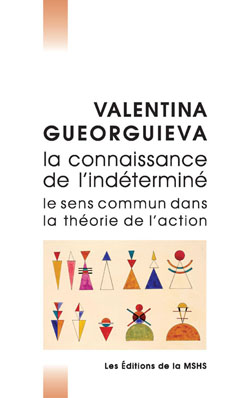La connaissance de l’indéterminé. Le sens commun dans la théorie de l’action
Knowledge of the Uncertain: Common-sense knowledge in the theory of action
Author(s): Valentina Gueorguieva
Subject(s): Philosophy, Social Sciences, Psychology, History of Philosophy, Epistemology, Ethics / Practical Philosophy, Social Philosophy, Special Branches of Philosophy, Philosophy of Mind, Social psychology and group interaction
Published by: Maison des Sciences de l’Homme et de la Société (Sofia)
Keywords: common sense; knowledge of the uncertain; common-sense knowledge; theory of action
Summary/Abstract: The mode of thinking that we call common sense contains a fundamental paradox, namely how personal sensations - so personal that they are almost incommunicable - form the vision of an intersubjective mode that we share with others, but also the feeling of belonging and participation in the world which characterizes action. We will not be wrong to define common sense as the faculty of knowing, following Descartes, if we only specify that it is a way of broadening one's thinking and opening oneself to plurality. We will not be wrong to define common sense as a virtue, following Aristotle in his reflections on phronesis, if we specify that it is not a formal requirement or a Kantian imperative. It would be wrong to make it a capacity to act, formed in the spirit of a community of judgment by the expanded mentality, following Arendt. The quest for common sense starts from a historical reconstruction, passes through the critical examination of recent interpretations on the Kantian sensus communis and on Aristotelian phronesis, which follows by research on ordinary knowledge in phenomenological sociology, in ethnomethodology and analytical philosophy, to arrive at the definition of common sense as the capacity to know the indeterminate.
- Print-ISBN-13: 978-954-9567-26-7
- Page Count: 398
- Publication Year: 2008
- Language: French
- Table of Content
- Introduction
- eBook-PDF

